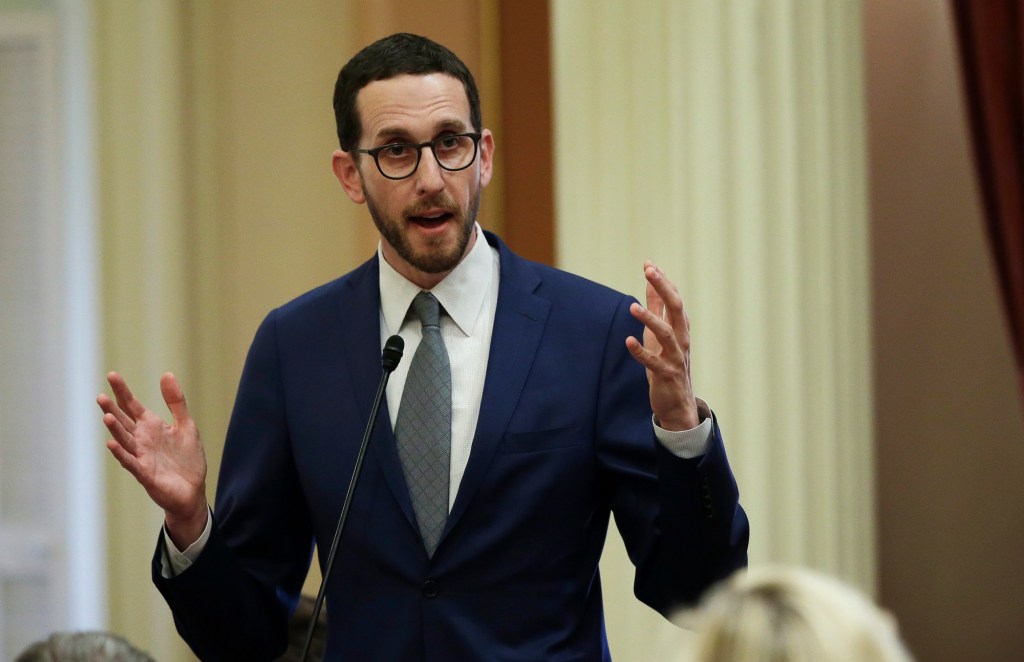
Cities exist to exert control, sometimes even in good ways, for their residents and their local commercial enterprises.
They are literally more local, more closely in touch, than the larger political entities of county, state and federal governments. So it is entirely understandable, in theory, why so many California cities rose up in opposition to Senate Bill 79, by San Francisco Democrat Sen. Scott Wiener, which seeks to upzone California neighborhoods near mass-transit stations in the biggest cities and metropolitan areas in the state.
The bill, which recently narrowly squeaked through the Legislature despite much opposition from not only cities but many other Democratic legislators, was the latest version of legislation Wiener and members of California’s YIMBY — Yes In My Back Yard — movement have been backing since 2018, with no success. And even this year, the bill was amended 13 times in order to meet the concerns of Assembly and state Senate members being lobbied by their cities, and by organized labor, who sought and gained concessions. But it did pass, and is likely to be signed by Gov. Gavin Newsom, and it means multi-family developers can construct residential buildings as tall as 75 feet, even if that means automatically overriding local zoning, local city councils and local NIMBY neighbors.
It wasn’t easy going. As Ben Christopher at nonprofit news site CalMatters reports, “The Senate ultimately passed the bill by the narrowest possible margin, with Wiener only claiming his final vote from Bakersfield GOP Sen. Shannon Grove after a few tense minutes. The Assembly vote was equally close, with just 43 of the chamber’s 80 members supporting it.”
Given California’s critical need for much more housing affordable to all — supply to meet the demand — we say that this is a good thing, and we applaud the passage of SB 79, even with its imperfections gained through those amendments and concessions, particularly its clause that in some cases requires the hiring of only unionized construction workers, which will greatly increase the cost of building.
“Decades of overly restrictive policies have driven housing costs to astronomical levels, forcing millions of people away from jobs and transit and into long commutes from the suburbs,” Wiener said in a statement after the vote.
SB 79 also lets transit agencies develop land they own, giving them another much-needed revenue source. In fact, the organization California YIMBY recognizes that is one of the many hesitations from opponents. “The fear is Hong Kong. I think the reality is going to be something closer to Copenhagen — not everyone is going to build the maximum demand,” Matthew Lewis of California YIMBY said.
And, unfortunately, despite those high-rise fears, the impact of the bill is likely to be almost more symbolic and aspirational in the near term, one developer in the state told CalMatters. Land prices are still high. Putting existing lots together to create enough room for apartments and condos is still hard. “We will probably see in the next five years 20 to 30 SB 79 projects around the state, that’s my wild guess,” developer Mott Smith said. “Both the opponents and the proponents of the bill are probably overstating how much this is going to change the built environment in California.”
Then there are the high tariffs on construction materials, the crackdown on immigrant construction workers, the high interest rates — SB 79 can’t solve those critical problems.
So, baby steps. But the passage of this bill is still a promising one for the ability to build more housing in our state rather than see its development stalled by red tape and NIMBYism. Maybe your kids will be able to find a home in California after all.



